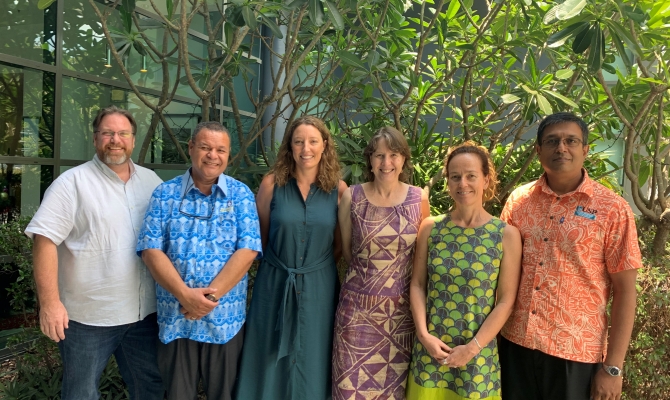News - Apr 21, 2021 PacWastePlus Holds Research Advisory Group Meeting

The PacWastePlus programme held its first meeting for its Research Advisory Group Meeting in Brisbane, Australia on December 10 2019.
The establishment and operation project Research Advisory Group (RAG) is embedded into the programme plan and is designed to ensure officers from SPREP and participating countries have access to appropriate skills and experience in the design and implementation of project actions, and to ensure any required research is adequately identified and undertaken, and any research outcomes developed for the project can be appropriately peer-reviewed prior to their use in project actions.
The RAG will advise and contribute to the preparation and implementation of in-country projects and provide (and seek) advice to the Project Working Party, Project Steering Committee and project Technical Advisory Panels.
The advisory group will provide technical support and strategic advice to the PacWastePlus Programme Management Unit (PMU) related to the design and implementation of project actions aimed to reduce the impact of waste on the community and environment and further assist in developing a research agenda for the PacWastePlus programme which will assist and inform project actions undertaken by the Project Management Unit and participating countries.
Membership to the Research Advisory Group is open to representatives from tertiary education institutions or technical consultancies that undertake research actions in the topic area of solid waste management, and/or the application of gender-sensitive and human rights-based approaches to programme development and project implementation.
Participation is based on professional interest only and is not accompanied by standard remuneration, however, pre-determined expenditure will be covered by SPREP and specified payments will be made for RAG related travel and accommodation.
PacWastePlus is funded by the European Union-funded to improve and enhance waste management activities and the capacity of governments, industry and communities to manage waste to reduce the impact on human health and the environment and seeks to generate improved economic, social, health and environmental benefits for Pacific Island Countries arising from stronger regional economic integration and the sustainable management of natural resources and the environment.
The programme is designed to specifically assist participating countries to address the environmental issues caused through the management of asbestos, e-waste, healthcare waste, recyclables, organics, bulky waste, disaster waste and wastewater.

